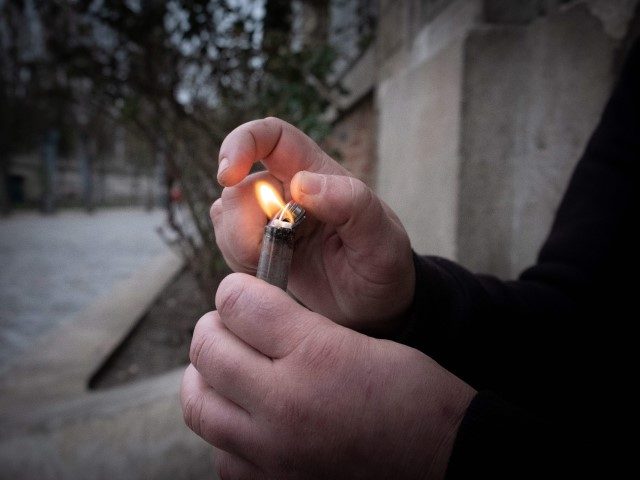JOE BIDEN - MORAL DEGENERATE AND ETHICALLY DEPRAVED!
House Republicans Introduce ‘HUNTER Act’ to Prohibit Federal Spending on Crack Pipes

Two House Republicans have introduced legislation called the “HUNTER Act 0f 2022” which would prohibit the federal government from using funds to purchase crack pipes, syringes, and other drug paraphernalia.
The proposed legislation comes on the heels of a Washington Free Beacon report which alleged the Biden Administration would provide addicts with crack pipes included in “safe smoking kits/supplies” through a $30 million grant program. Biden’s Department of Health and Human Services (HHS) has since said “no federal funding will be used… to put pipes in safe smoking kits,” Breitbart News reported.
The legislation, officially dubbed “Halting the Use of Narcotics Through Effective Recovery Act of 2022’’ or the “HUNTER Act of 2022,” was introduced by Rep. Lauren Boebert (R-CO) and Rep. Dan Bishop (R-NC), Fox News reports. The bill’s name seemingly takes a swipe at President Joe Biden’s son, Hunter Biden, whose past struggles with crack cocaine addiction have been well-documented.
Boebert told Fox News:
Congressman Bishop and I are standing up and saying, heck no. Our tax dollars should not be funding the death and destruction of crack addicts. Democrats are always putting the American taxpayer last and Republicans just want to give people in need a good job. Democrats want to give them crack pipes.
The legislation states in part:
(a) IN GENERAL.—No Federal funds, including funds appropriated by section 2706 of the American Rescue Plan Act of 2021 (42 U.S.C. 290dd–3 note), may be used for the purchase, or to support the purchase by any recipient of Federal assistance, of any drug paraphernalia.(b) DEFINITION—In this section, the term ‘‘drug paraphernalia’’— (1) has the definition given to that term in section 863 of title 18, United States Code; and (2) includes, to the extent covered by such definition, crack pipes, harm reduction vending machines, syringes, and safe smoking kits and supplies.
“I like the HUNTER Act because it was a better acronym than Stop Paying to Subsidize Biden’s Son’s Drug Addiction act. That didn’t really flow,” Boebert told Fox News. “I think tax dollars have been on the hook for Hunter’s addictions long enough.”
“The HUNTER Act is a means of encapsulating how ridiculous public policy can become when it’s in the hands of the woke,” Bishop told the outlet.
Though the HHS has denied crack pipes would be included in safe smoking kits, Boebert and Bishop remain firm on the proposed HUNTER Act.
“Whenever they are caught red-handed they use the phrase misinformation or disinformation to stop the American people from calling them out,” Bishop told Fox News. “That’s what happening.”
“We want that in statute. We’re not taking their word for it,” Boebert said.
No comments:
Post a Comment